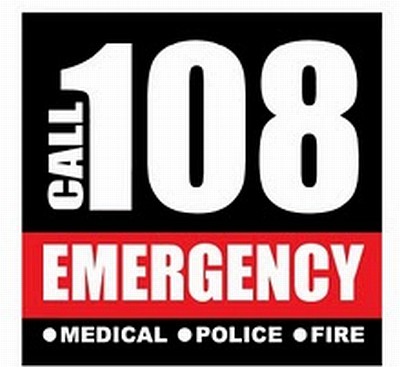Write to letsraisethespirits@gmail.com if you have any additional inputs or leave your comments below the blog
Alright, an emergency can occur to anyone anytime. It can be due to a sudden cardiac arrest, electrocution, animal or insect bites, hypoglycemia, choking, fainting, sunstroke, severe injuries including fracture and uncontrolled bleeding etc.,
Also, road accidents keep happening every single minute due to unsafe roads, reckless driving habits, drunk and driving, rash driving this list is limitless.
In a post-accident environment, we always talk about the first-responder (the person who takes charge of the situation, provides first-aid and provides direction to others) and seldom talk about the other key people part of the support system like the person who takes charge of clearing the traffic, the person who takes the responsibility to call the 108 or any similar emergency number.
There is no place to discuss few senseless individuals who take pictures or videos without showing any empathy to the accident victims. I'm also not going to talk about the inquisitive or the curious bystanders who believe that someone else will take care of the victim.
There are many pairs of hands required to save a life and generally, the focus is diverted on only to the first-responder. Sometimes the first-responder could be just alone and he or she must have to play multiple roles.
For the sake of simplicity, let's assume there is one more person available to call the Ambulance and this article is all about this person.
When an emergency is reported through 108, the call taker gathers the needed basic information and dispatches appropriate services. Basic information obtained includes:
Pre-hospital care or ALS or Advance Life Support is expected to be given to patients being transported to the nearest hospital. We all assume that the 108 ambulance is well equipped to handle a variety of emergency situations and comes with well trained and empathetic driver and paramedic.
The service is normally free to patients.
- Where the call is placed from. (district / taluka /city / town / exact location / landmark)
- The type of emergency
- The number of people injured and the condition of the injured
- The caller's name and contact number – for location guidance if required
Emergency help dispatched through this process is expected to reach the site of the emergency in an average of 18 minutes (God safe traffic and horrible road conditions)
Pre-hospital care or ALS or Advance Life Support is expected to be given to patients being transported to the nearest hospital. We all assume that the 108 ambulance is well equipped to handle a variety of emergency situations and comes with well trained and empathetic driver and paramedic.
The service is normally free to patients.
Your 6 key responsibilities
- You are a vital support person to the first-responder already attending to the victim, you may act as a vital support person and listen to his/her instructions. Understand very clearly what kind of first aid from the Advanced Life Support (or ambulance) is required. Sometimes AED (Automated External Defibrillator) equipment may be required and you may want to communicate that when you call the emergency room. I don't know if 108 provides AED - this must be validated.
- Do not panic: Stay calm and move away from busy traffic or noisy area to ensure the emergency room operator can hear you clearly.
- Quickly gather knowledge to guide: assess the nature of the accident and the victims condition, the location of the accident (good idea about the geography and the access roads to give directions to the ambulance driver), what type of emergency situation and how many people are affected. More than one ambulance may be required in some of the nasty accidents involving multiple people.
- Communicate confidently and clearly: You play a very crucial role as a caller who will connect the emergency services team with the accident team in getting the best and quickest assistance during the Golden Hour period.
- Assist the first-responder after the call: Once the call is completed - you may assist the first-responder or control the crowd or even the traffic (you can shout and ask them to move away or give way to the ambulance arriving) or assist in handling the victim.
Finally, please circulate this, who knows you could save a precious life by knowing how this works
Reference:



No comments:
Post a Comment